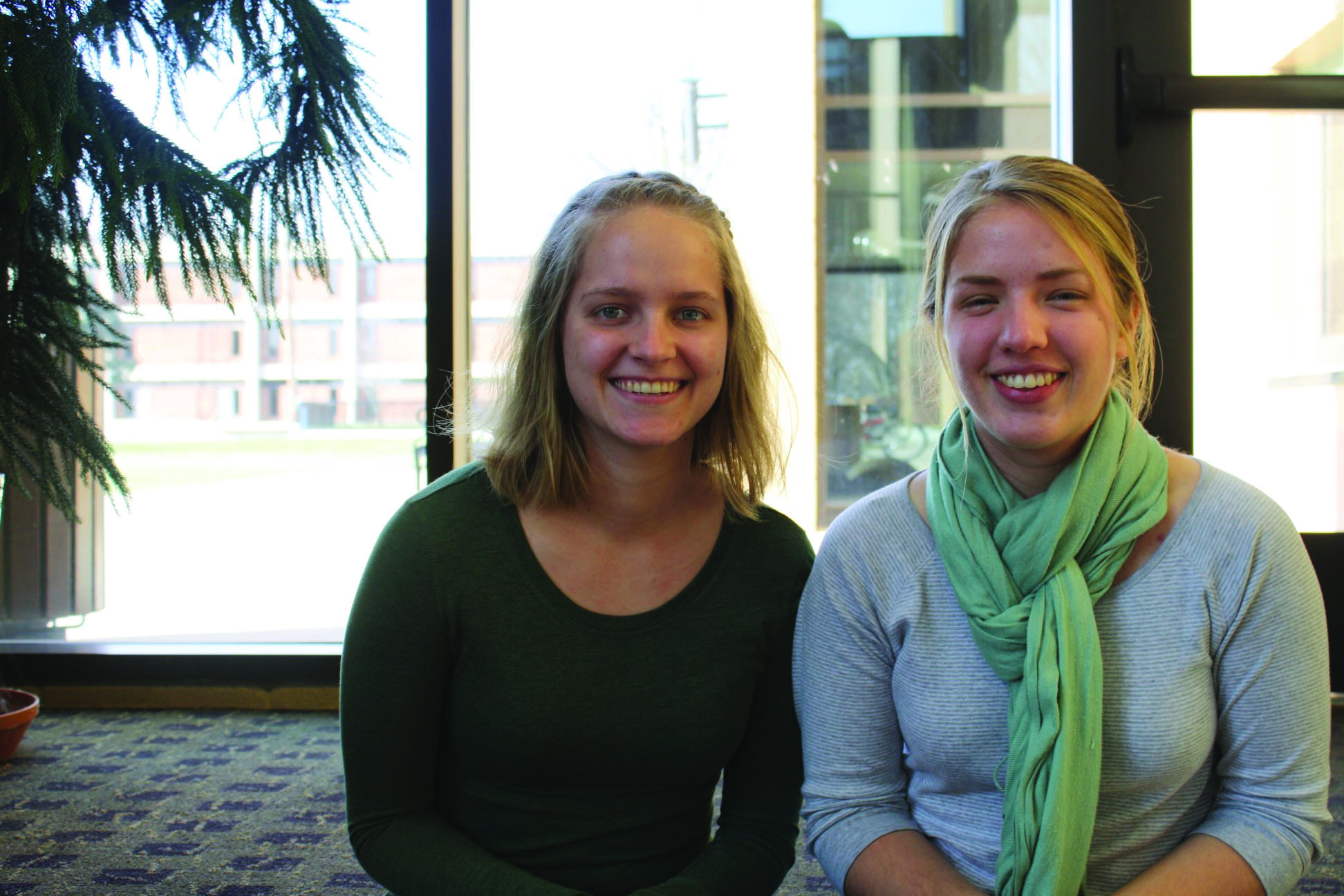By Lydia Yoder
This past fall, I participated in the Sustainability Semester in Residence (SSR) at Merry Lea, a new program where students live and learn together about local environmental issues. While it wasn’t easy to commit to being away from campus during my senior year, SSR proved to be an invigorating way to spend my second-to-last semester. Merry Lea geographically isn’t that far from Goshen, but the town of Wolf Lake and the surrounding area seem different from the community of Goshen College, which can feel like an ideological bubble.I entered the Sustainability Semester expecting to learn from environmentalists like those you’d find in the Goshen College community since we’d be taking weekly field trips to interview people on environmental topics. I quickly realized that conservative pastors, industrial-scale farmers and a manager of a gravel pit, among others, could teach me just as much about these issues. It was then that I knew the Sustainability Semester would broaden my understanding of the complexity of environmental problem-solving.
By Hannah Geiser
Ever since coming to Goshen College I had wanted the opportunity to explore Merry Lea. As a biochemistry and chemistry double major, all my time had been focused solely on the hard sciences and I was beginning to burn out in the regular classroom setting. When SSR was created, I saw it as the perfect opportunity to live at Merry Lea and to rejuvenate my interest in learning, even if it meant dropping one of my majors to do so. To be completely honest, I didn’t examine the course offerings at Merry Lea much and decided to go mostly for the fun of being in a new location. I thought it would be a fun and easy semester — it wasn’t Quantum Mechanics — and I would have plenty of time to visit my friends back on campus.
However, SSR was not at all what I expected. It was a challenging program that allowed me to realize my own prejudices and discover what it meant to be a member of this local and global community. We started with a group of seven individual students with different majors from three colleges and ended with a cohesive SSR community in one of my favorite college semesters ever.
When signing up for classes at the main campus, you don’t have to put much consideration into how you will relate with the other students in the class. SSR is a three-month commitment to live, work, eat, study and do everything else with a small group of students as an intentional community. We had to commit to being fully present with each other and to adapt to meet the needs of the group because the cohesiveness of the community directly affected each individual’s well-being.
We soon realized that while it is natural to constantly work towards this level of cooperation at a small scale, it doesn’t easily translate in larger communities like towns, counties or watersheds. As we learned to know the larger communities in the area, the difficulties became clear in seeing how positive interactions directly benefit each person and how individual actions contribute to larger social and environmental problems and solutions.
Throughout the semester, we had the opportunity to have conversations with over 130 people, ranging from those to whom “environment” was a dirty word to nature-loving hippies. Our experiences throughout 300 hours of learning outside of the classroom at 60 different sites taught us to recognize the limitations in our own biases and more fully appreciate the blurring of opposing sides. It’s hard to call one side good and the other bad in absolute terms.
One of the characters we met was the owner of a Michigan gravel pit. We went into the conversation with the mindset that a gravel pit isn’t the pinnacle of sustainability, but our sense of superiority quickly crumbled. We discovered that the owner had high moral standards and he carefully considered the ethics of each social and environmental decision. One conversation after another, our assumptions of sustainability as a two-sided issue dissolved and we learned the importance of allowing everyone to participate in discussions of environmental issues and solutions.



